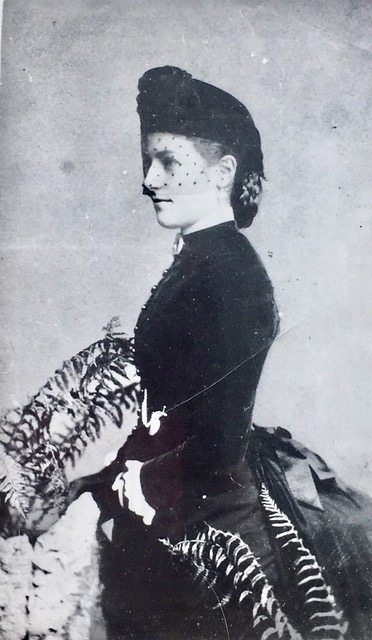Pulling Up Stakes
Women and Work on the Canadian Frontier
This project explores the life of Fanny Shepherd (1866-1937), who emigrated from England to Canada in the early 1900s with her family when she was in her fifties. She went from running a butcher’s shop in Kent to homesteading on the plains of Saskatchewan, where she raised her family of seven children and established a family farm and ranch, ran the local shop, post office, and gas pump, raised chickens to provide a thriving side income, and became a leading voice in petitioning the government to allow homesteading for all women. Remarkably, she also found time to write and publish short fiction.

Fanny’s life and work offer a window into a wide range of contexts such as emigration, homesteading, education, literature, farm work, and everyday life for women during this period. The project’s many layers allow users to explore any and all of these various contexts, and to see how they interrelate as well as spawn new ones.
"Pulling Up Stakes" makes Fanny's writings available publicly for the first time, helping to further the recovery of neglected women writers. It enhances our understanding of women's experience as immigrants establishing families and finding work, and sets those experiences in the context of scholarship on everydayness and modernity as well as the Canadian West. This project thus puts us in conversation with a community of scholars, as Sarah A. Carter puts it, committed to "the work of rescuing women from obscurity, both the exceptional and the ordinary" (vii). We echo Carter in drawing attention to women such as Fanny's contemporary Georgina Binnie-Clark "not because we need female additions to heroic tales of rugged individuals in the narrative of western Canada" but because their lives help us capture "many dimensions of the early twentieth-century Canadian West, particularly the privileges, limitations and complexities of gender and race categories" (vii). The project models how to use a single life to illuminate multiple aspects of the time and places in which it was lived; to celebrate the individual life as both unique and representative.
Source: Sarah A. Carter, "Introduction" to Georgina Binnie-Clark's Wheat and Woman (Toronto: University of Toronto Press, 2016)
~
This project is supported by the Faculty of English at the University of Oxford and led by Professor Kirsten E. Shepherd (Fanny's great-granddaughter) in collaboration with Dr Lauren Cullen. Please read our 'Contributors' tab for more on this project's roots.
Units








